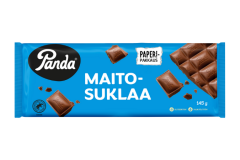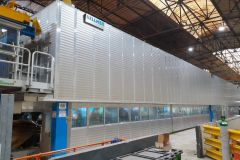After more than 15 months of research, Tetra Pak has succeeded in replacing this inner layer of aluminum with a fiber-based layer. This change would reduce the carbon footprint of the packaging and improve its recyclability.
The aluminium layer currently used in food packaging plays an essential role in food safety. But it is thinner than a hair and is responsible for one third of the greenhouse gas emissions associated with the base materials used by Tetra Pak.
Tetra Pak is now in the testing stage. A first test conducted in 2020 in Japan has helped determine the consequences on the value chain created by the replacement of aluminum by another material and quantify its impact on the carbon footprint.
"Initial results suggest that packaging with this new fiber layer will provide a significant reduction in CO2 compared to traditional aseptic cartons, with comparable shelf life and food protection properties." explains Gilles Tisserand, Tetra Pak's vice president for climate and biodiversity.
100 million per year in R&D for Tetra Pak
Taking into account the results of this first test, Tetra Pak has modified the packaging and left a new trial. A pilot batch of packaging is currently on the shelf for a commercial test with consumers, with validation of this technology expected by the end of 2022.
Eva Gustavsson, Tetra Pak's vice president of materials and packaging, says that everyone in the value chain must work together to create greener packaging.
She adds: "We will invest up to ?100 million per year over the next five to ten years to produce the most sustainable food cartons possible, and this includes research and development of packaging made with a material base that has a high recyclability rate. We still have a long way to go to achieve our sustainability ambitions while protecting food safety and ensuring high quality standards, but with the support of our partners, we are on the right track."













